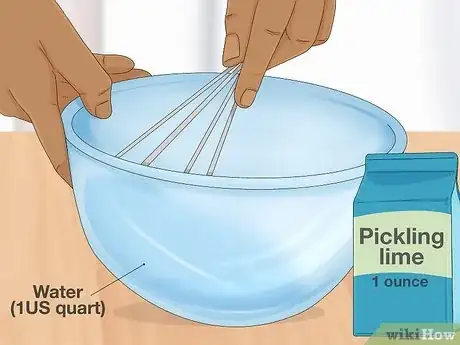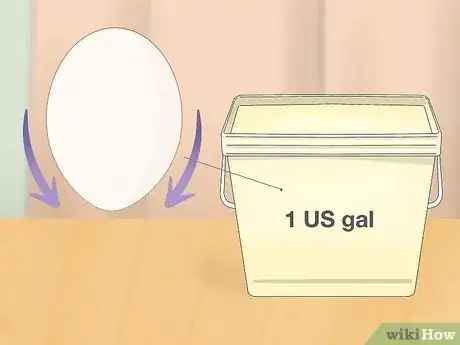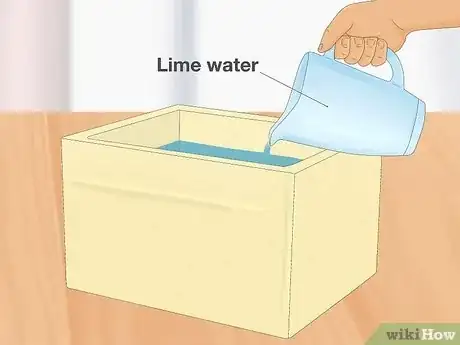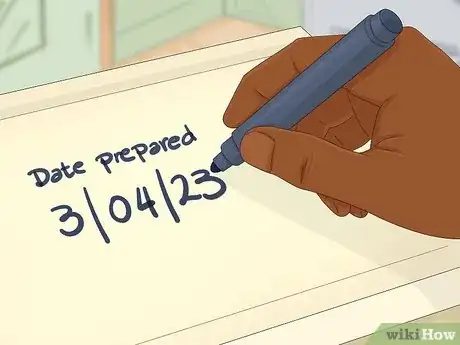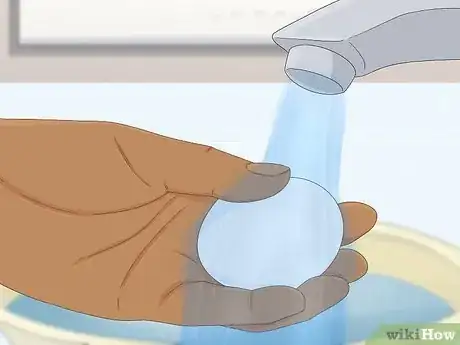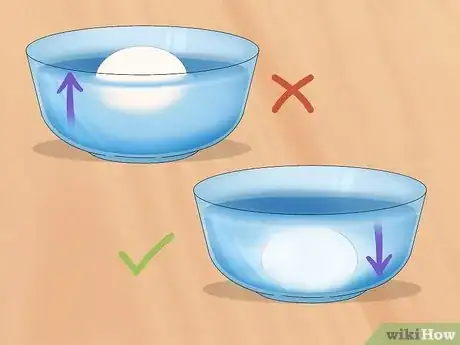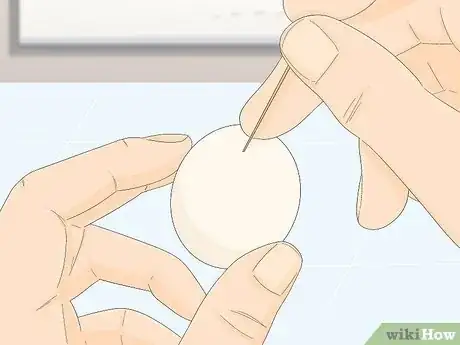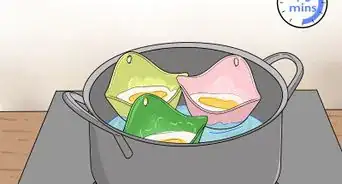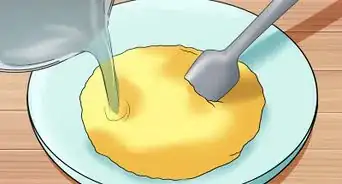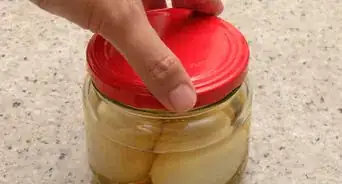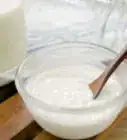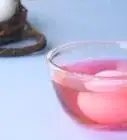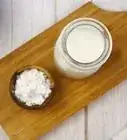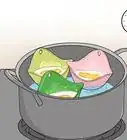This article was co-authored by Ollie George Cigliano. Ollie George Cigliano is a Private Chef, Food Educator, and Owner of Ollie George Cooks, based in Long Beach, California. With over 20 years of experience, she specializes in utilizing fresh, fun ingredients and mixing traditional and innovative cooking techniques. Ollie George holds a BA in Comparative Literature from The University of California, Berkeley, and a Nutrition and Healthy Living Certificate from eCornell University.
There are 15 references cited in this article, which can be found at the bottom of the page.
This article has been viewed 1,268 times.
Looking to preserve farm-fresh eggs year-round? If so, water-glassing eggs is an old, popular long-term storage method. Before you get started, just know that food safety experts don't usually recommend water glassing eggs since there's a higher risk of salmonella infection (refrigerating eggs is always your safest bet).[1] If you'd still like to give it a try, this article will go over the entire process step-by-step.
Things You Should Know
- Make a preservation liquid of 1 ounce (28 g) pickling lime to 1 US quart (0.95 L) distilled water.
- Layer unwashed, farm-fresh eggs in a 1 US gal (3.8 L) food-grade bucket, and cover the eggs with lime water.
- Store your eggs in a cool, dark location for up to one year.
Steps
Warnings
- Food safety experts don't recommend water glassing eggs since storing eggs outside of the refrigerator can lead to the growth of bacteria, like salmonella.[18]⧼thumbs_response⧽
- Salmonella can actually form inside eggs before they're even laid, meaning there's no way to know if you're water glassing an egg that's contaminated. Salmonella inside of an egg can proliferate if the egg is not refrigerated.[19]⧼thumbs_response⧽
- The USDA recommends promptly refrigerating eggs to prevent food-borne illnesses.[20]⧼thumbs_response⧽
Things You’ll Need
- Pickling lime
- 1 US gal (3.8 L) 1 US gal (3.8 L) food-grade bucket
- Kitchen scale
- Whisk
References
- ↑ https://enewsletters.k-state.edu/youaskedit/2020/11/
- ↑ https://www.chickenwhisperermagazine.com/nutrition/all-about-the-bloom
- ↑ https://thepeasantsdaughter.net/how-long-eggs-last-unrefrigerated
- ↑ https://youtu.be/axCWqTI0ZqE?t=183
- ↑ https://www.timbercreekfarmer.com/water-glassing-fresh-egg-storage
- ↑ https://www.lime.org/documents/lime_basics/lime-physical-chemical.pdf
- ↑ https://youtu.be/uRQs_A6SuCI?t=204
- ↑ https://youtu.be/axCWqTI0ZqE?t=301
- ↑ https://youtu.be/uRQs_A6SuCI?t=239
- ↑ https://youtu.be/axCWqTI0ZqE?t=334
- ↑ https://henstoothhomestead.com/home/water-glassing-egg-preservation
- ↑ https://www.cdc.gov/niosh/docs/81-123/pdfs/0092.pdf?id=10.26616/NIOSHPUB81123
- ↑ https://www.timbercreekfarmer.com/water-glassing-fresh-egg-storage
- ↑ https://www.thepioneerwoman.com/food-cooking/cooking-tips-tutorials/a32415535/egg-float-water-test
- ↑ https://youtu.be/axCWqTI0ZqE?t=353
- ↑ https://www.timbercreekfarmer.com/water-glassing-fresh-egg-storage
- ↑ https://henstoothhomestead.com/home/water-glassing-egg-preservation
- ↑ https://enewsletters.k-state.edu/youaskedit/2020/11/
- ↑ https://enewsletters.k-state.edu/youaskedit/2020/11/
- ↑ https://www.fsis.usda.gov/food-safety/safe-food-handling-and-preparation/eggs/shell-eggs-farm-table

